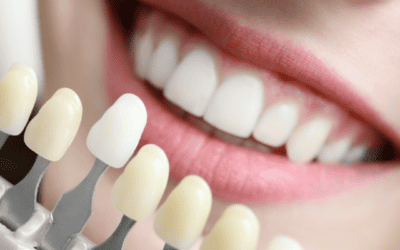This week is The Australian Heart Foundation’s Heart Week. It provides an opportunity to talk about heart health and understand the risks associated with heart disease.
Data by the Heart Foundation revealed more than two thirds of Australian adults (69.1%) have at least three risk factors for the nation’s biggest killer – heart disease. 1
Did you know that it has been known for more than a century that there is a link between oral health and heart health? 2
There have been numerous studies showing that people with poor oral health have higher rates of cardiovascular problems (e.g heart attack, stroke) than those with good oral health. So if you have gum disease that is at a moderate or advanced stage, you are at a greater risk of heart disease. If you already have heart disease, it’s even more important that you care for your mouth.
What’s the connection between our mouths and our hearts?
This is still being studied, but there are several theories, all of which may be interconnected. 3
- Shared risk factors, i.e those people that are at higher risk of gum disease, may also be at higher risk of heart disease.
- Bacteria from the mouth, Eg. those that are associated with gum disease, can travel into the bloodstream and throughout the body. They have the potential to cause inflammation and damage in the blood vessels. This can lead to the formation of blood clots, which can cause heart attacks and strokes.
- Chronic inflammation in the body (i.e gum disease) causes damage throughout the body. This includes damage to the heart and circulatory system, as well as other systems that show links to gum disease, eg. the brain (see our article on the link between gum disease and Alzheimer’s).

Inflamed gums.
Who’s at risk?
If you have chronic gum disease (e.g gingivitis or periodontitis) you are at risk of heart disease, especially if the condition is left diagnosed or untreated. The problem with gum disease is that it can cause no symptoms (like high blood pressure) until it is too late. Even if you don’t have gum disease, poor oral health and the accumulation of plaque in the mouth puts you at a higher risk of gum disease, and therefore heart disease. The bacteria from the plaque can enter the blood stream and cause inflammation, which can increase your risk of heart disease and stroke.
What should I look out for?
The best way to ensure healthy gums is to have them checked by the dentist. Some gum disease can progress without signs or symptoms. Your dentist will assess your risk and advise how often you should have your gums checked (could be every 3 months if you are very high risk, or even once per year if low risk). However, if you have any of the following signs/symptoms, get your gums checked straight away:
- Gums that bleed when you brush or floss. Flossing is not causing your bleeding gums. Many patient think that the floss is damaging their gums. Remember, healthy gums don’t bleed.
- Gums are sore, look red and/or puffy. Healthy gums are pain free, pink and not swollen.
- You have bad breath and/or bad taste in your mouth. This can be a sign of a lot of plaque accumulation and/or infection
- It looks like your gums are pulling away from your teeth. This could be gingival recession, but it could also indicate advancing gum disease and loss of the supporting bone around the tooth.
- Teeth that are moving/drifting. Gaps appearing where they weren’t before or teeth that seem to be drifting into another position can indicate a loss of bony support of the tooth, and advanced stage of gum disease
- Teeth that are loose. This is end-stage of gum disease, when so much supporting bone has been lost that the tooth is coming loose.
The above signs/symptoms are in order of severity. If you leave things until the teeth are loose, there is little that can be done. The early stages (pain, inflammation) can be reversible. Don’t put off getting your gums checked.

All smiles after a check-up and professional cleaning.
What if I already have heart disease?
It’s really important to let your dentist know your full medical history. Make sure they are aware of any heart conditions, including high blood pressure, previous strokes, heart surgery (including stent placement) or heart attacks. Give your dentist a full list of all your medications (including any complementary medications). Look out for our next blog for more on this.
High Blood Pressure
- A study 4 showed that people taking blood pressure medication were more likely to have a successful outcome of their treatment if they had good oral health.
- Taking this into consideration, if you have high blood pressure you should make sure you’re getting your gums checked and cleaned regularly and pay closer attention to your home care of your gums (see below).
- In addition, if you have periodontal disease it may be worth having a blood pressure check.
What can I do to reduce my risk?
1. Make your oral health a priority.
Along with other healthy habits – good diet, exercising, stopping smoking, reducing alcohol – put brushing, flossing and visiting your dentist at the top of your to-do list. Your mouth affects the health of the rest of your body, don’t neglect it.
2. Good oral hygiene.
Brush twice per day with a soft, small-headed toothbrush and fluoride toothpaste. Floss daily to reach the areas between your teeth. You can also use interdental brushes (your dentist will advise which is best for you).

Clean your teeth and gums for a healthy heart.
3. Visit your dentist regularly
Only your dentist can accurately assess your oral health and weigh up your risk factors for oral disease. They will measure your gums to assess their health and take into consideration your medical history and any other risk factors, Eg. smoking. Once they have assessed your risk and made a diagnosis they will work with you to make a plan. Regular professional cleaning will help keep your gums healthy. For severe disease, you may be referred to a periodontist (a specialist in gum health and treatment).
Remember: healthy mouth, healthy body.
Read our other article on the link between the health of your mouth and other areas of your body here.
References
1 https://www.ada.org.au/News-Media/News-and-Release/Latest-News/Goodoralhealthandbloodpressure
2 https://www.ahajournals.org/doi/full/10.1161/CIR.0b013e31825719f3
3 https://www.ncbi.nlm.nih.gov/pmc/articles/PMC88948/



